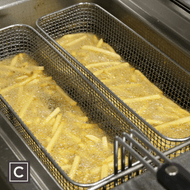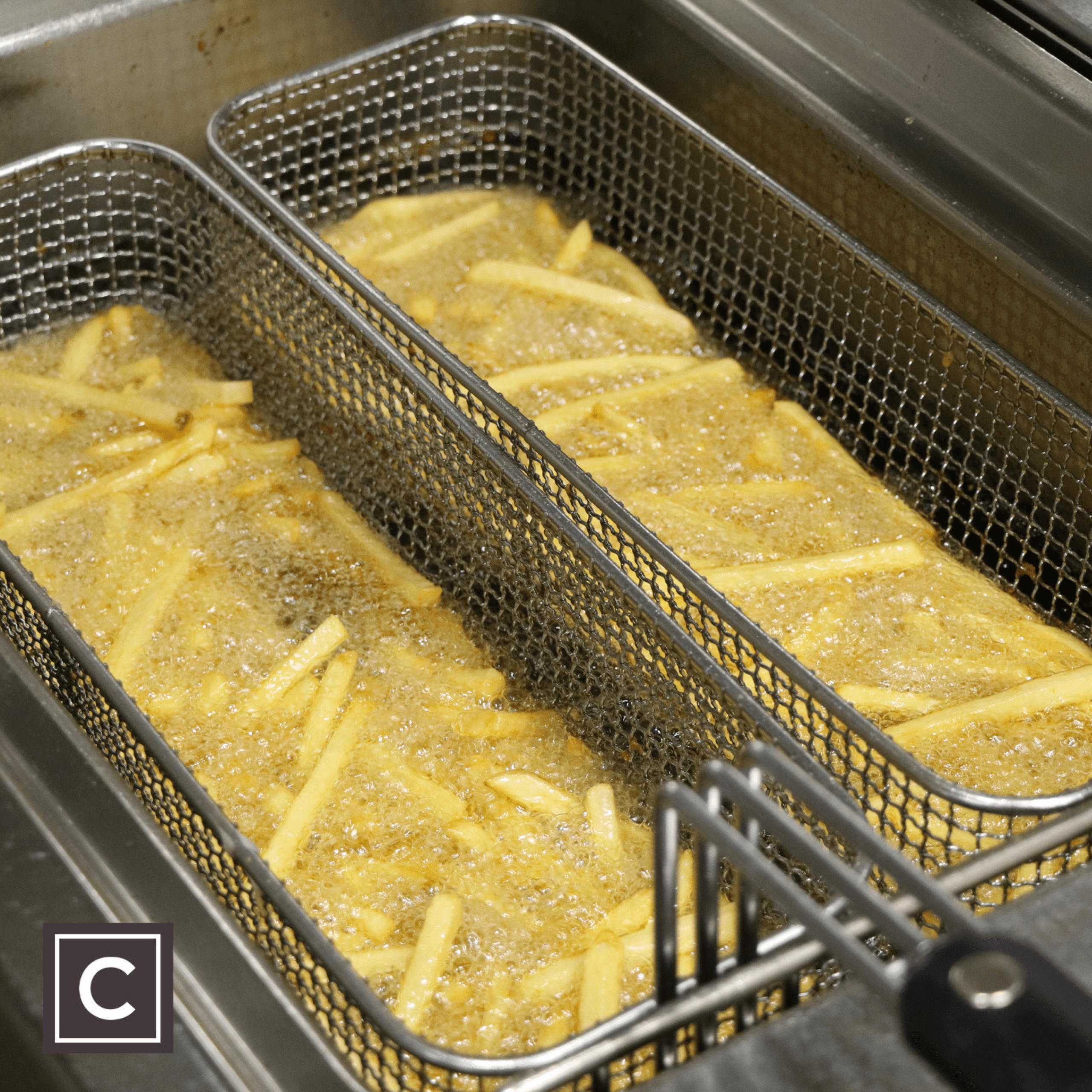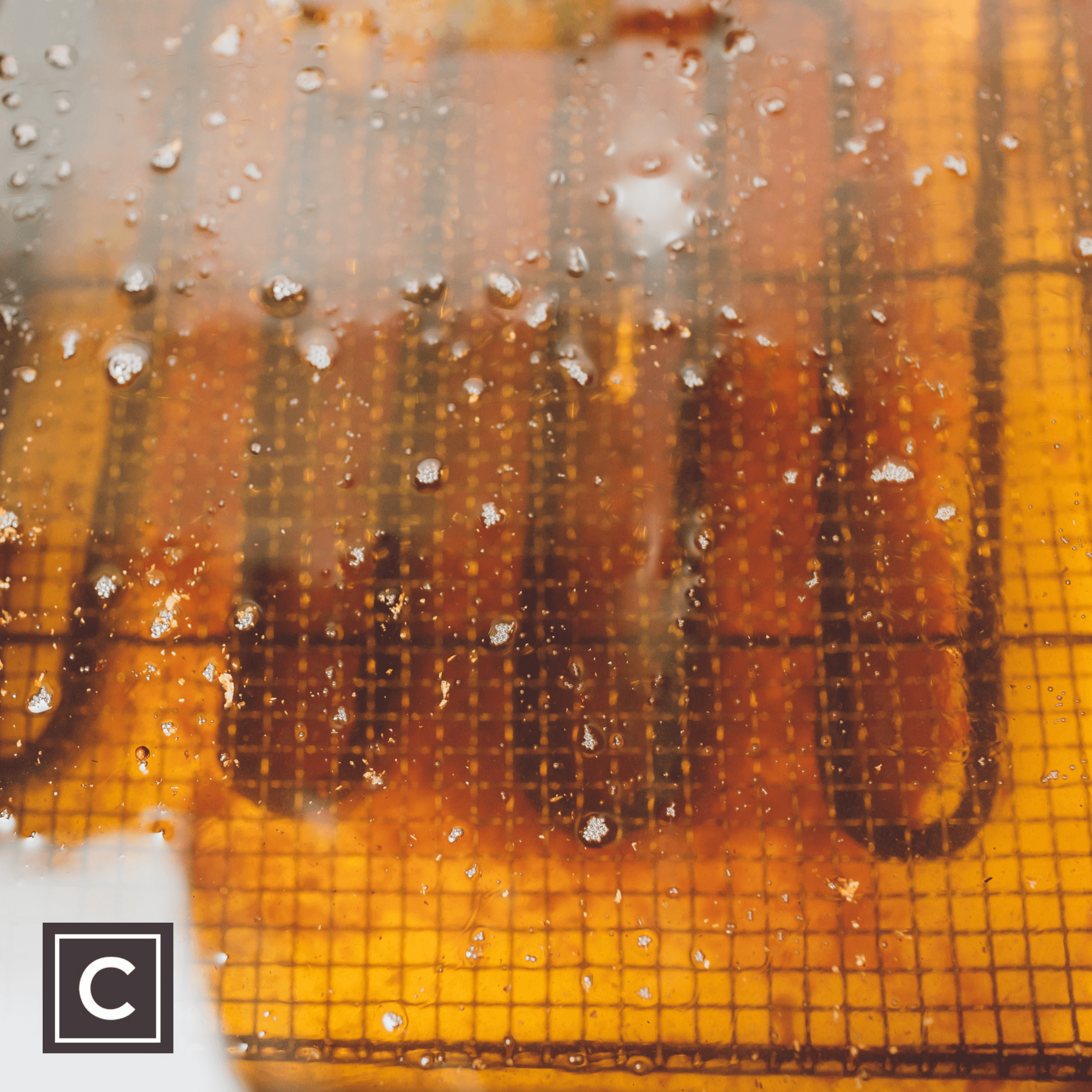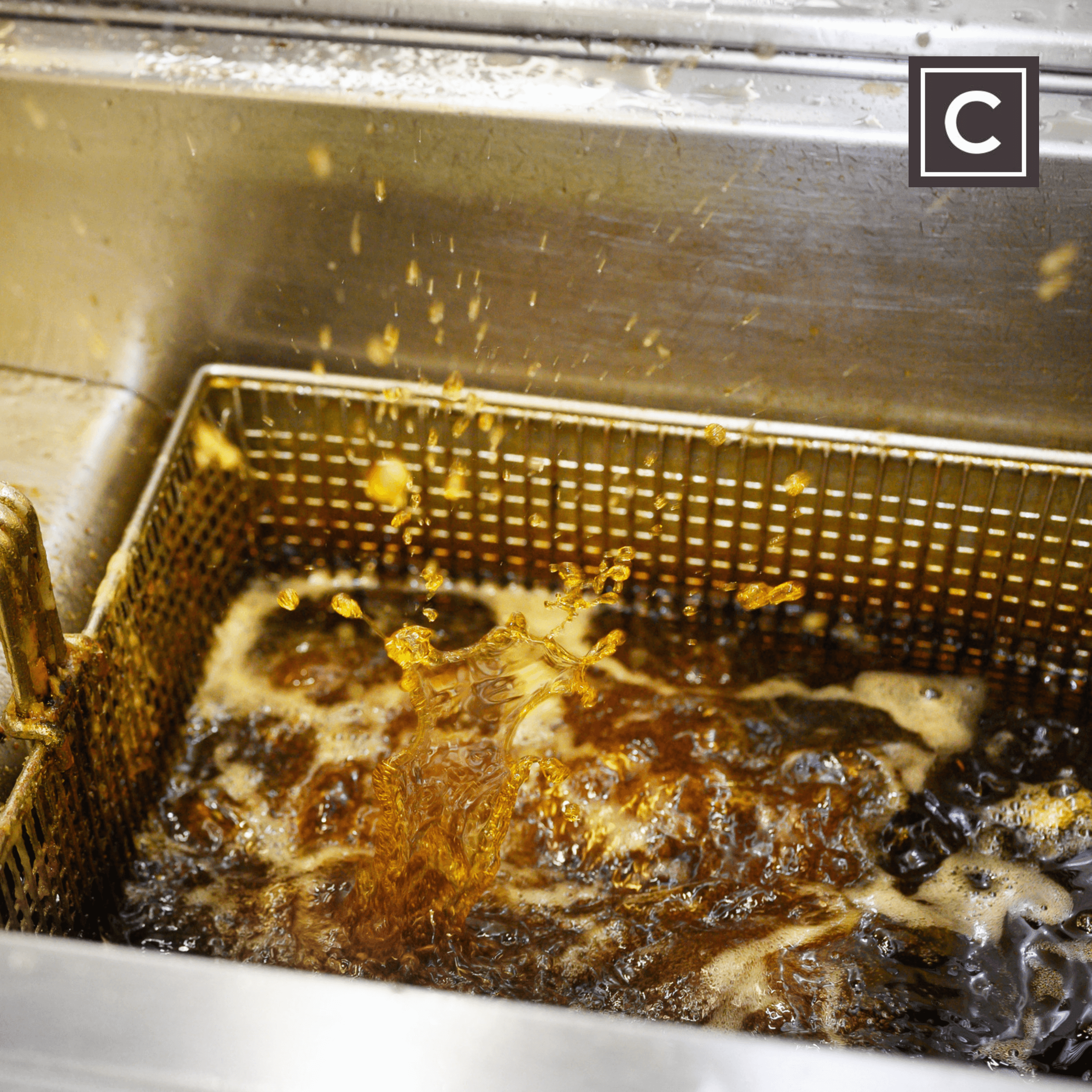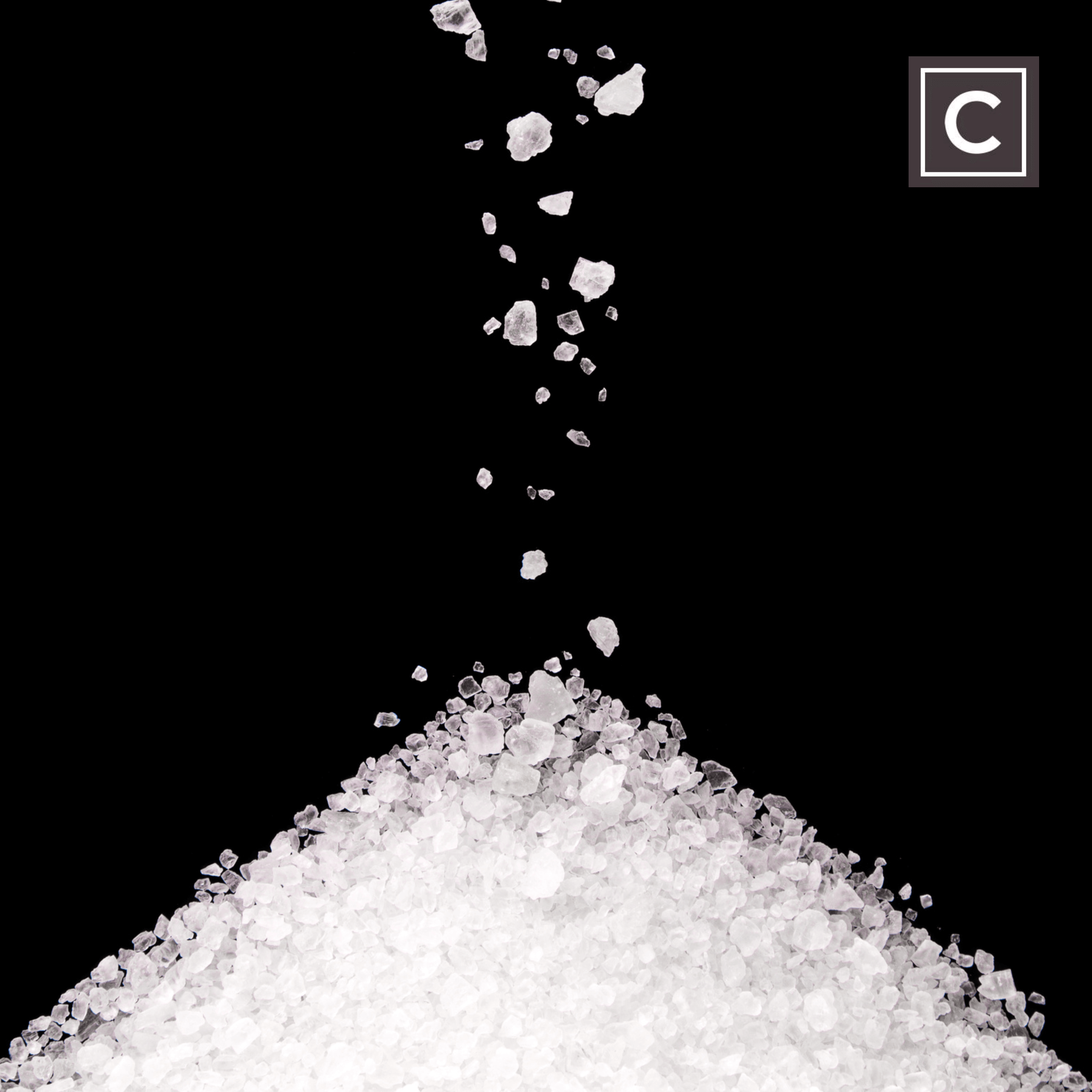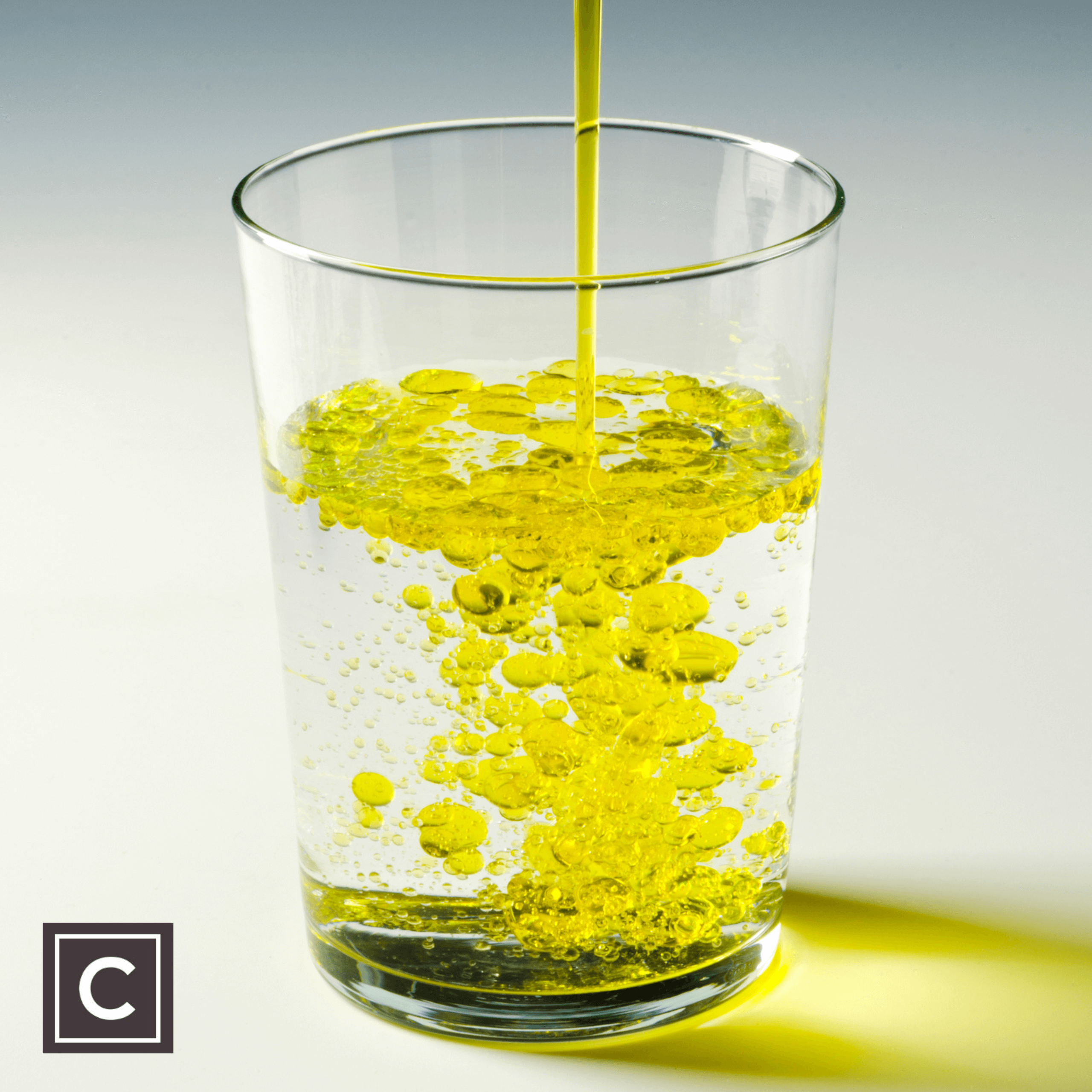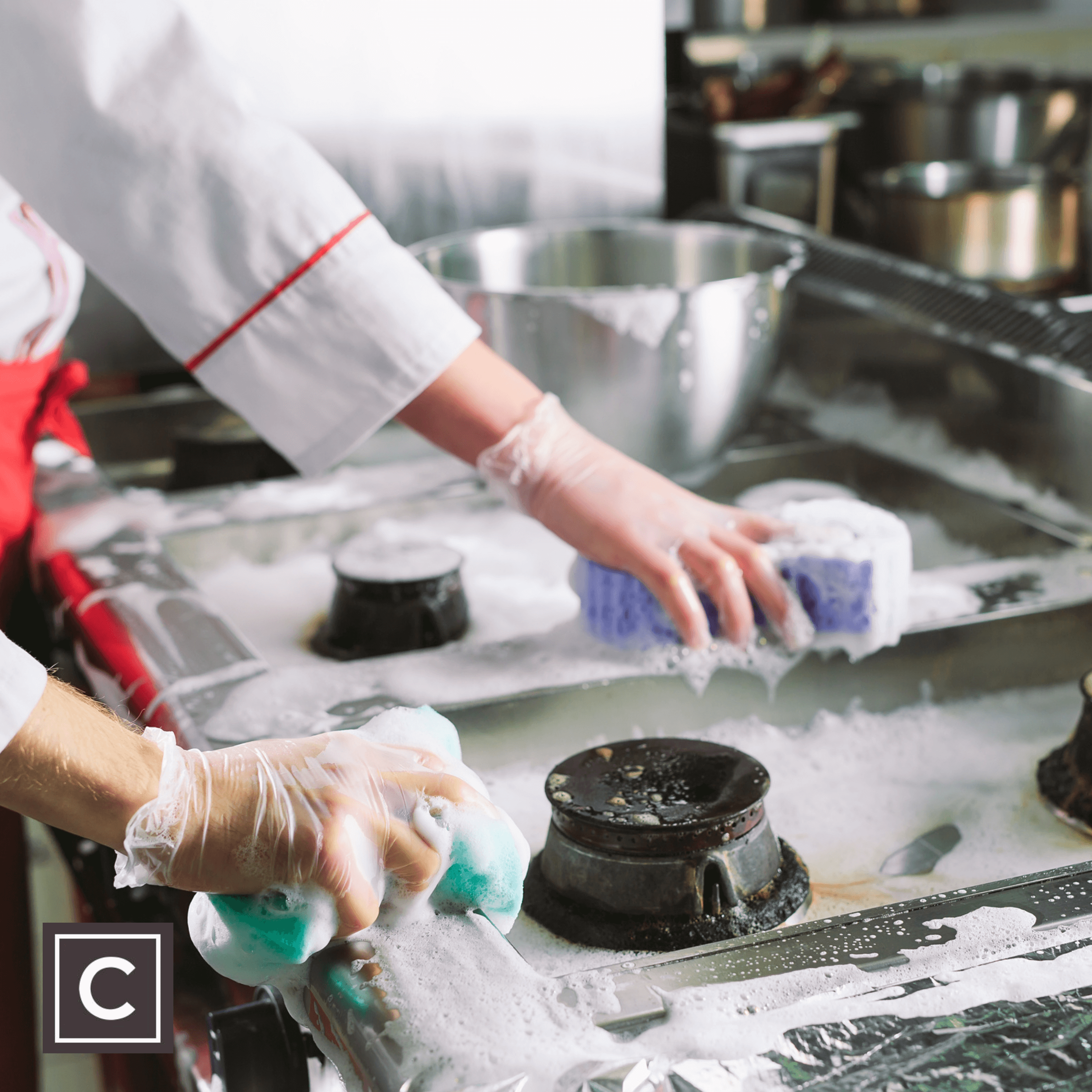The Secret to Perfectly Crispy Fish & Chips: Knowing the Enemies of Frying Oil
Posted by Stelios on 15th Jul 2023
Imagine a world without the irresistible crunch of fish and chips. Unthinkable. Behind every mouthwatering bite lies a crucial ingredient: frying oil in impeccable condition. The quality of our favourite fried delicacies hinges on the pristine state of this golden elixir.
However, lurking in the shadows are adversaries that can wreak havoc on your frying oil, sabotaging its longevity and compromising the delectable delights it imparts. To ensure impeccable maintenance of your cooking oil and elevate the quality of your fare, it's essential to identify and conquer the culprits responsible for its breakdown. By defeating these foes, you can secure the loyalty of return customers and maximise profits by extending the lifespan of your oils.
Prepare to uncover the relentless enemies of frying oil that might rob you of those satisfied punters and extra profit.
Oxygen: The Sneaky Saboteur
Oxygen, ever-present in the air, poses a constant threat to your frying oil. When edible oil encounters oxygen, it undergoes oxidation, resulting in the formation of hydroperoxides. As these hydroperoxides break down, they wreak havoc on both flavour and oil quality. The process of thermal oxidation, catalysed by heat, further accelerates lipid peroxidation and triggers chemical changes within the cooking oil.
The consequences are foul odours, diminished flavour, compromised nutritional value, and decreased health benefits. Combatting oxidation requires replenishing the pan with oil before each frying shift to prevent excessive amounts of oil from sitting unused. Controlling oxidation can be achieved by topping up your pans with fresh oil, at least 1/3 of the pan's capacity per day.
While some may suggest covering the fryer to limit exposure to air, this alone won't eliminate oxygen. However, using lids as a preventive measure can reduce the chances of foreign particles contaminating your oil.
Carbon: The Covert Culprit
Carbon buildup resulting from food particles is another formidable adversary to oil longevity. Food remnants tend to disintegrate and settle at the bottom of the fryer. If you continue using the same oil for multiple batches of food, these carbon-laden remnants transfer distinct flavours and aromas, eventually leading to rancidity. Additionally, excessive coating in fried foods contributes to unsightly foam formation on the oil's surface.
To combat this menace, one of the simplest and most effective measures is to sieve the oil of crumbs after each frying batch. While frequent frying inevitably leads to oil breakdown, regular filtering significantly extends its shelf life. Employing high-quality oils with a higher smoke point can also help preserve the freshness of your oil. Always ensure that the oil you choose is suitable for frying.
Regular filtering eliminates carbon from the frying oil, but it's equally vital to implement a routine boil-out with Ceres Deep Fryer Cleaner to remove carbon and polymerised fats from the frying vessel. This essential step keeps your probes working efficiently and ensures optimal oil quality.
Here are some tips to minimise carbon formation:
- Use a separate fryer or countertop fryer for breaded fried products or a snack pan on your range if available. Breaded foods generate a significant amount of carbon, effectively diverting the issue away from your main fryers.
- Similar to above, use a countertop fryer or a separate commercial fryer for meat products, such as sausages, burgers, and chicken. These items release fat, blood and water, accelerating oil breakdown and polymerisation in the fryer.
- Avoid frying floured products like fish without batter or southern fried chicken in your primary fryer, as the flour quickly burns and turns into carbon, tainting the oil's freshness.
- If you don't intend to serve batter bits, promptly remove them from the fryer to prevent burning and carbon formation; this also helps with fryer recovery.
Salt: The Unassuming Catalyst
During the frying process, salt acts as a catalyst, expediting oxidation. This, in turn, causes the oil to darken in colour and release off-flavours, negatively impacting the taste of your food. Salted products also release water, leading to foam formation, which further contributes to oil breakdown. Additionally, salt can act as an impurity, lowering the oil's smoke point and accelerating its degradation, ultimately shortening its lifespan.
To safeguard your oil from degradation, it's advisable to avoid adding salt before frying. Instead, ensure your food reaches the desired level of crispiness without the need for additional salt. If you prefer seasoning your food before frying, consider using Ceres Pre-Dust Solutions, which encapsulate the seasoning beneath the batter coating, minimising its impact on the frying medium.
Water: The Relentless Adversary
We all know from basic chemistry that oil and water do not mix. When heat is applied during the frying process, moisture is released from the food, causing oil decomposition. As foods absorb the degraded oil, it adversely affects their final properties, including nutrition and shelf life.
With repeated use, your oil will inevitably break down. Steam escaping during frying causes foaming and significantly impacts both flavour and food quality.
To address this issue, it is imperative to follow best practices:
- Avoid overcrowding the fryer to help maintain an appropriate frying temperature.
- Ensure the fish is dry before frying.
- Use our pre-dust solutions to create a better bond between batter and fish.
- Ensure freshly treated chips are thoroughly dried before frying.
- Consider using Ceres Super Absorbent Cloths to dry off fish before frying.
- If you don't plan on serving batter bits, quickly remove them from the fryer to minimise extra moisture and help maintain optimal oil temperature.
Light & Heat
To safeguard your frying oil, store liquid oil away from direct sunlight. Light accelerates chemical reactions, including oil degradation. When fat molecules break down, the oil turns rancid. Certain oils, like rapeseed oil, possess unique chemical structures that render them more susceptible to rancidity, resulting in unpleasant odours.
To extend the longevity of your frying oil, avoid storing it in transparent containers. Instead, opt for opaque or dark-coloured vessels and store them in cool, dark places with tightly sealed caps.
Extreme temperatures also hasten the breakdown of frying oil, leading to overcooked interiors despite achieving a crispy exterior. To counteract the detrimental effects of heat, it's crucial to maintain your cooking oil at its ideal frying temperature. Regularly check the pan temperatures to ensure consistency in the fried food's quality. Deviations from the displayed temperature can yield unevenly fried food.
Avoid the temptation to fry at excessively low temperatures, as this results in unevenly fried food with higher moisture content in both the food and the frying oil. When the fryers are idle, filter the oil and switch them off or set the temperature to 100°C to conserve oil quality.
Time: The Silent Assassin
The duration for which oil is used plays a significant role in its breakdown. Over time, with repeated use and exposure to various factors, frying oil naturally deteriorates. While proper maintenance and adherence to best practices can extend its lifespan, it's crucial to monitor the age of your oil and replace it when necessary. Regularly check the oil for signs of degradation, such as excessive foaming, off-putting odours, or a darkened colour. By refreshing your oil regularly, you can maintain the quality of your fried food and prolong the life of your oil.
Detergents: The Foamy Foe
Cleaning compounds, degreasers, and soaps can be your oil's worst enemies. These substances tend to be alkaline or surfactants, with elements that are both hydrophilic (water-loving) and lipophilic (fat-loving). Even tiny amounts of soap can break down frying oil, leading to the formation of degradation compounds that compromise the oil's flavour, aroma, and overall lifespan.
Conclusion
In this guide, we have covered the main issues that concern the degradation of frying oil, unveiling the seven enemies that can compromise its longevity and the quality of your fried food. By understanding these adversaries and implementing the suggested preventive measures, you can ensure your frying oil remains in prime condition, delighting customers with consistently crispy and tasty fish and chips.
Effective oil management encompasses routine filtering, topping up with fresh oil, and monitoring oil age. Regular filtration not only extends the life of your oil but also enhances food quality. Additionally, maintaining clean fryers through regular boil-outs using Ceres Deep Fryer Cleaner helps combat carbon buildup, ensuring optimal frying performance.
Remember, controlling oxygen exposure, managing carbon formation, reducing salt usage, preventing water ingress, protecting oil from extreme heat, avoiding detergents, and prioritising ingredient quality are all crucial steps in maintaining the health and longevity of your frying oil.
Lastly, always keep an eye on the age and condition of your oil, replacing it when necessary or learning how to change it just before needed. By implementing these practices diligently, you can elevate the taste, texture, and overall satisfaction of your fish and chips, establishing a reputation for excellence and maximising the profitability of your establishment.
With these insights and a commitment to proper frying oil maintenance, you're well-equipped to conquer the enemies of frying oil and deliver unparalleled culinary delights to your customers, ensuring their return for the perfect fish and chips experience.

